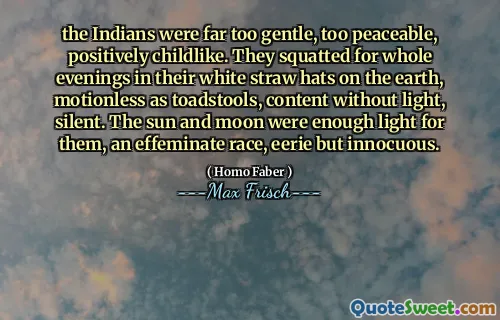"Homo Faber," written by Max Frisch, revolves around the life of Walter Faber, a rational, technocratic man who believes that life can be understood and controlled through logic and technology. The narrative follows his journey as he travels from Europe to South America for work. Faber's commitment to reason is challenged as he encounters various events that compel him to confront his emotional and ethical dimensions.
A crucial episode in the story occurs when Faber meets a woman named Sabeth, who he unknowingly discovers is his daughter. This revelation leads to a series of existential crises and reflections on fate, identity, and the complexities of human relationships. The story explores themes of alienation and the conflict between rationality and the unpredictability of life.
Loading...
More »
Today Birthdays
1729 -
Edmund Burke
1949 -
Haruki Murakami
1954 -
Howard Stern
1876 -
Jack London
1993 -
Zayn Malik
1951 -
Kirstie Alley
1863 -
Swami Vivekananda
1923 -
Alice Miller
1987 -
Naya Rivera
1825 -
Brooke Foss Westcott
1944 -
Joe Frazier
1951 -
Rush Limbaugh
1964 -
Jeff Bezos
1978 -
Jeremy Camp
1628 -
Charles Perrault
1856 -
John Singer Sargent
1970 -
Kaja Foglio
1953 -
Rick Santelli
1986 -
Gemma Arterton
1968 -
Raf Simons
1958 -
Christiane Amanpour
1966 -
Olivier Martinez
1996 -
Ella Henderson
1917 -
Maharishi Mahesh Yogi
1949 -
Ottmar Hitzfeld
1928 -
Ruth Brown
1968 -
Heather Mills
1946 -
George Duke
1968 -
Rachael Harris
1923 -
Ira Hayes
